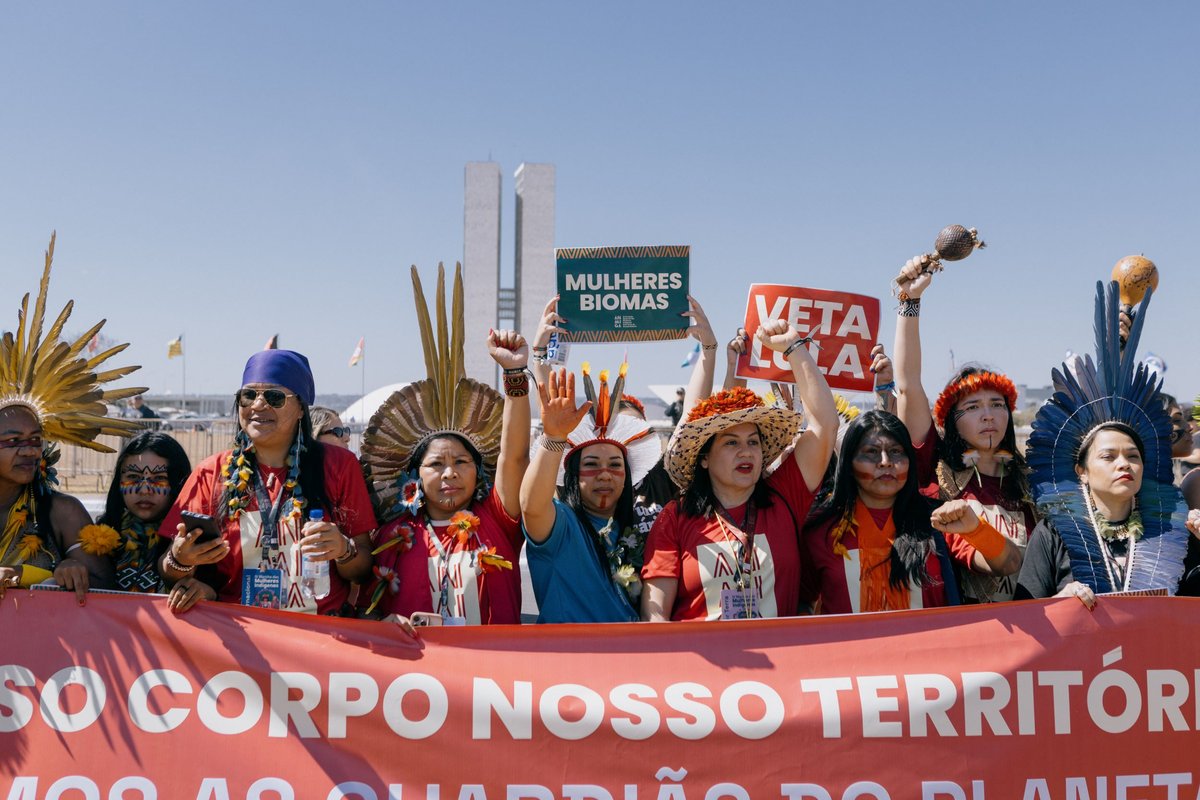Foreword from Mike Davis, our CEO
At Global Witness, our purpose is to shift the balance of power from big polluting industries to those on the frontlines of the climate emergency, who take a stand for their and their communities’ rights
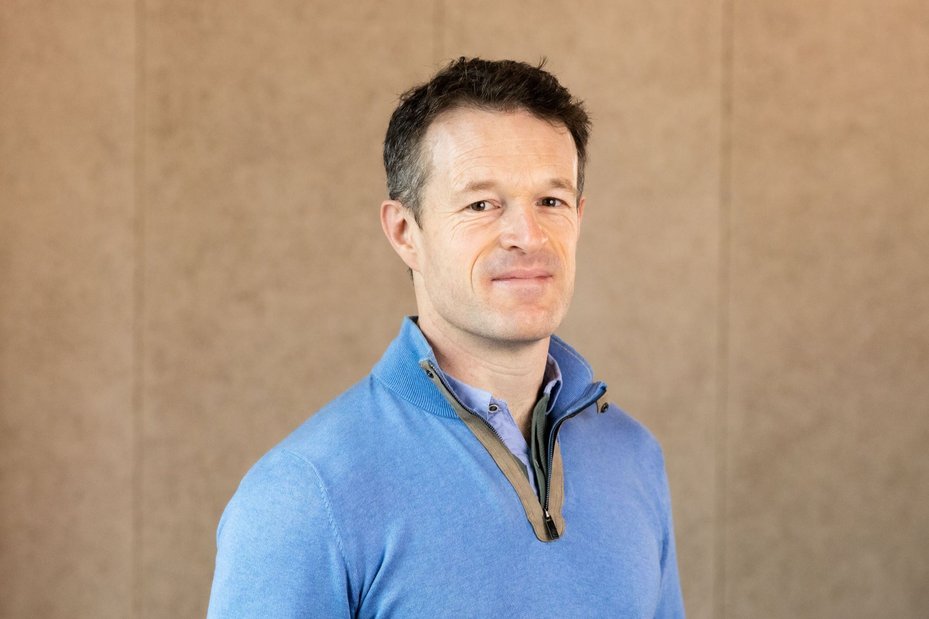
Mike Davis, CEO. Luciana Dal Ri
Finding hope amid growing challenges
So, what positives can we take from a year that saw increased suppression of climate action, the ascent of a climate change-denying US president, and UN climate talks being hosted by an autocratic petrostate?
We can, I believe, find opportunities in just how exposed those blocking the path to a sustainable, prosperous and peaceful future now are. We can find hope and inspiration in the courage of land and environmental defenders around the world, who are protecting climate-critical landscapes that the rest of us depend on.
In some respects, 2024 was the year the facade cracked. Some of the world’s biggest polluters, notably Shell and BP, dropped the pretence that they were part of a just transition. Instead, they made plans to scale back their renewables projects and increase their extraction of oil and gas.
2024 also saw the unmasking of governments that have hijacked the mantle of climate leadership to profit from planetary breakdown. In June last year, we revealed how, during the United Arab Emirates (UAE)’s year as president of the UN COP28 climate talks, its state oil company that sought to broker new oil and gas contracts worth $100 billion.
It appeared the UAE had used its role as the world’s designated leader on climate action as a shop window for deals that would take the Earth closer to the brink of disaster.
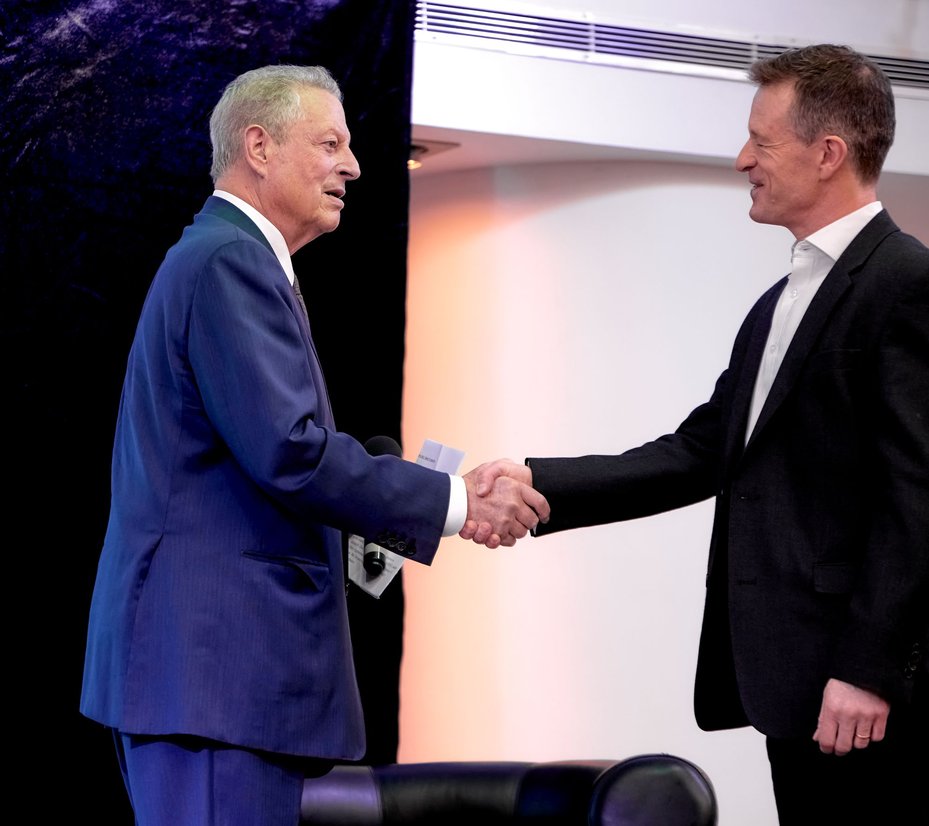
Global Witness CEO Mike Davis with Al Gore as part of a Climate Reality Project panel discussion at COP29, Baku 2024. Robert Leslie / Global Witness
Exposing oil and gas influence at COP29
Why, we wondered, would Azerbaijan, another autocratic petrostate, want to take on the presidency of COP29?
Might they be tempted to follow the same playbook as the UAE? In search of an answer, we set up a fake company, posed as oil and gas investors, and sought a meeting with the COP29 presidency team.
In November, on the eve of COP29, we released the findings of our undercover investigation. These showed the CEO of the COP presidency team offering, on camera, to help facilitate oil and gas deals on the sidelines of the negotiations.
I attended the COP29 summit in Baku as the sole Global Witness representative, due to security concerns. The day before I travelled, a committee of the Azerbaijan parliament accused Global Witness of undertaking a “hybrid attack” and behaving like “special services”.
The day after I arrived, President Aliyev gave an irascible speech in which he harangued western NGOs and media organisations, and called oil and gas “a gift of God”.
Climate leaders issued a call for reform of the COP process – indirectly referencing our undercover exposé. As part of the Kick Big Polluters Out coalition, we found that at least 1,773 were granted access to COP29
Amid rumours in Baku that the authorities were poised to take legal action against Global Witness and potentially me personally, climate leaders including Mary Robinson, Ban Ki-moon and Christiana Figueres issued a call for reform of the COP process.
They indirectly referenced both our undercover exposé and our investigations into the presence of fossil fuel lobbyists across consecutive COP summits (as part of the Kick Big Polluters Out coalition, we found that at least 1,773 were granted access to COP29).
Former US Vice President Al Gore made a series of strong statements in Baku about the malign influence of fossil fuels interests, and invited me to speak on this topic at a panel event he was chairing.
This gave me a chance to draw attention to the detention of our partner, anti-corruption academic Dr Gubad Ibadoghlu, who was arrested following his public criticism of Azerbaijan’s oil and gas industry.
Mr Gore told the audience of his surprise that I had not yet been apprehended, and I was grateful to be on a flight out of Baku just a few hours later.
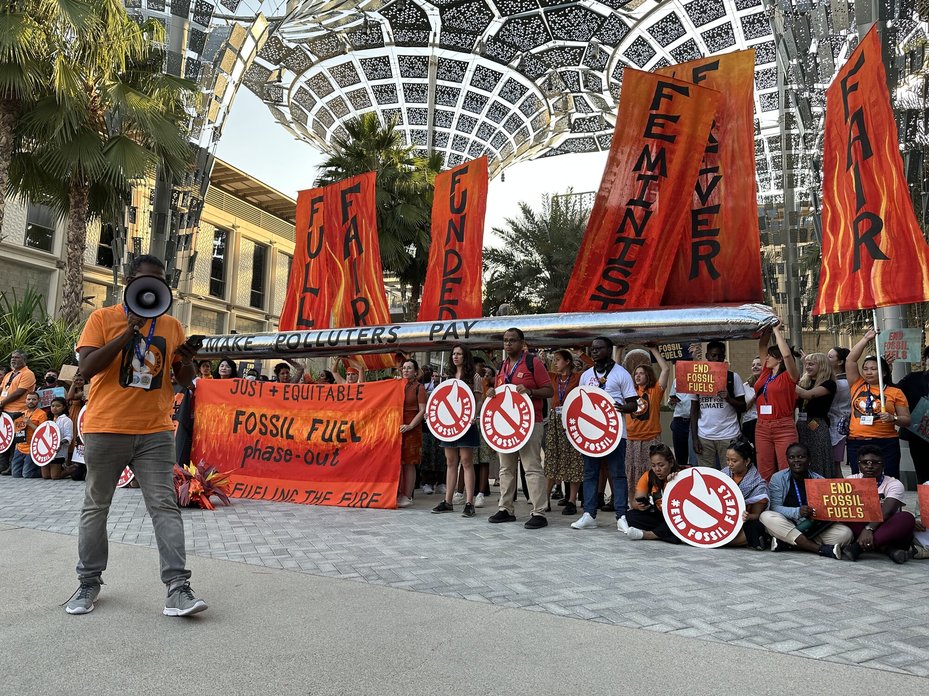
Fossil fuel phase-out protest calls on COP28 negotiators to make polluters pay, Brazil pavilion in Dubai, UAE. Jasmin Qureshi / Global Witness
New opportunities for climate leadership
The year’s big climate summit illustrated the oil and gas industry’s efforts to corrupt international climate action. Elsewhere, though, 2024 signalled the scope for new leadership on protection of nature and the climate.
At Al Gore’s COP29 panel event, I was sitting alongside Colombian Minister for the Environment Susana Muhamad, who had just presided over the UN Convention on Biological Diversity summit (COP16) in Cali.
This conference fell short of delivering much needed financing for the protection of nature, but it did establish a dedicated body through which Indigenous Peoples and local communities can be part of decision-making within the UN biodiversity framework.
Now, like many others, we are looking forward to Brazil’s hosting of COP30 in November 2025. A focus for us, and many of our partners, is how this summit might advance protection of land and environmental defenders and ensure they have a role in decisions on international climate action.
Thirteen years ago, a former teammate of mine in Cambodia, Chut Wutty, was killed while exposing an illegal logging operation. This shocked us into investigating the global phenomenon of attacks on people defending their lands and the environment.
Working with a network of partners, we publish data annually on threats, criminalisation and killings. A report we released last September revealed 196 killings of defenders in 2023 alone. Over 1,500 people have lost their lives since the 2015 Paris Agreement.
Over the past two years we’ve been working alongside dozens of other civil society groups to develop a new international initiative to increase the prominence of land and environmental defenders in international climate decision-making and afford them greater protection. Called the Leaders Network for Environmental Activists and Defenders (LEAD), it now commands the support of 11 governments and an array of UN agencies and special rapporteurs.
We are delighted that the Brazil government has agreed to sponsor LEAD and has committed to launch it formally at COP30.
With thanks to our funders
Our impacts in 2024, and beyond, are founded on the generosity of our funders.
I want to extend particular thanks to Open Society Foundations, for the depth of their unstinting support to Global Witness.
In addition to their support, in 2024 we also received an exceptionally generous one-off grant from a funder that allowed us to scale up campaigns on emerging issues and increase the amount of funding we could share with our partners.
The gift also catalysed the development and implementation of an innovative new recruitment process, which saw Global Witness nominated for an HR Excellence Award for the first time, a recognition that we are all extremely proud of.
Standing with people fighting for our planet
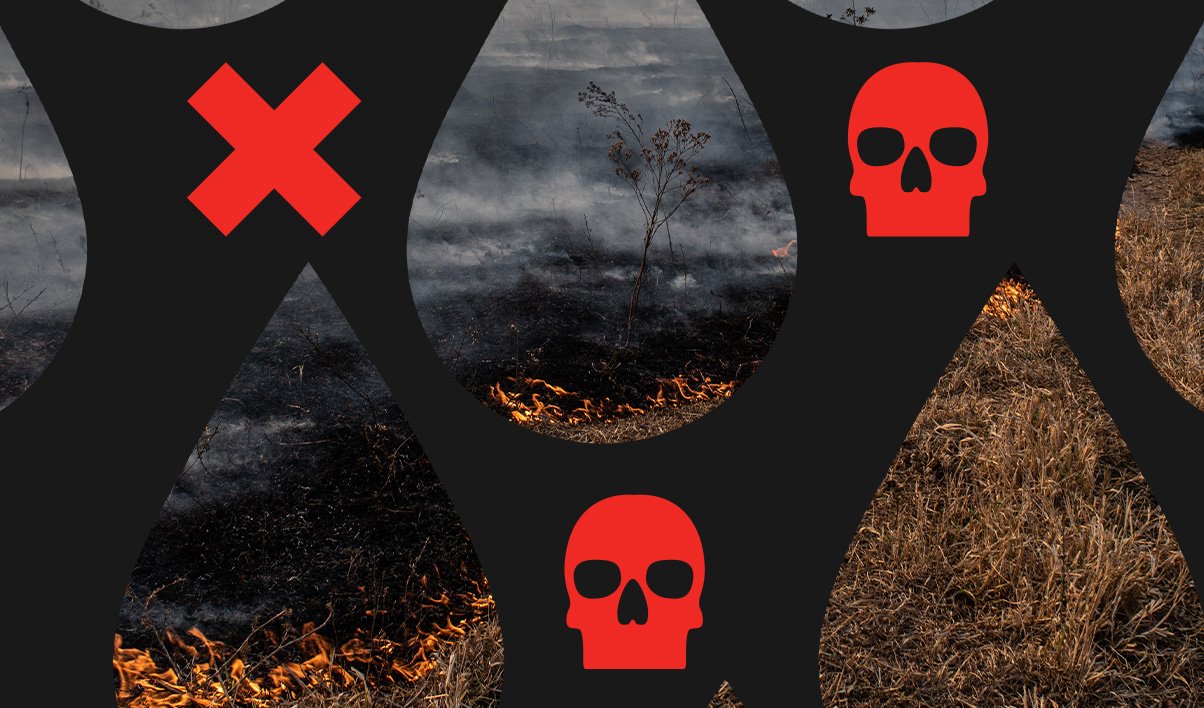

Lucas Ninno / Global Witness
Challenging the power of big polluters
Global corporations are putting our future at risk to make their shareholders rich. Fossil fuel giants trample climate goals to continue peddling oil and gas, while financiers fuel industries that are slashing the critical forests we need to maintain a liveable planet.
We’re fighting back. By exposing the key players driving the climate crisis and spotlighting those hit hardest by its effects, we’re telling polluters enough is enough.
Fossil fuels
Oil and gas companies have influenced politicians, infiltrated climate summits and helped fund war – all while plundering the planet for profit.
Now, millions of people are suffering fires, heatwaves, storms and floods as climate breakdown intensifies.
Together we’re standing up to fossil fuel giants and exposing how far they’ll go to make money, as they drag us all into climate catastrophe.
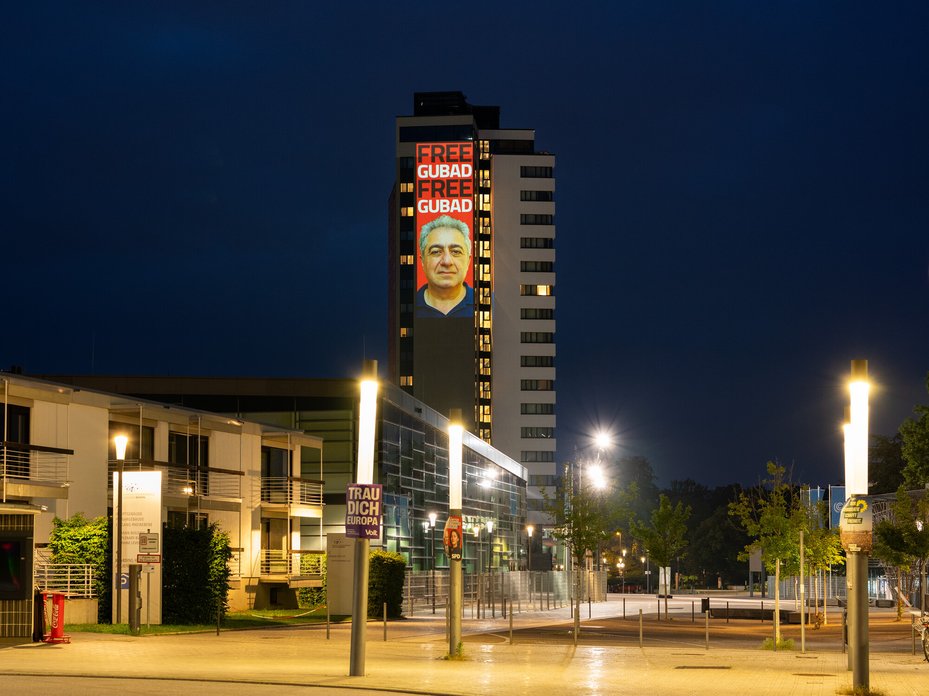
A Free Gubad projection in Bonn, Germany, calls for the release of oil and gas industry critic, Dr Gubad Ibadoghlu. Global Witness
Spotlight: Global Witness and COP29
The 29th Conference of the Parties to the UN Framework Convention on Climate Change (COP29) was held in Azerbaijan in November. In the run-up, we exposed the risk the government’s close ties to the fossil fuel industry posed to critical climate action.
As COP29 neared, we carried out an undercover investigation which revealed that Azerbaijan appeared willing to use the summit to broker fossil fuel deals.
Our team posed as investors looking to invest in Azerbaijan’s oil and gas sector, and sponsor the climate talks.
In a potential breach of UN standards, Elnur Soltanov, Azerbaijan’s CEO of COP29, agreed to introduce us to SOCAR (the national oil and gas company) to discuss fossil fuel investments. Our exposé won far-reaching coverage across the BBC, Reuters and others.
Soon after, global climate leaders including Mary Robinson, Ban Ki-moon and Christiana Figueres sent an urgent letter calling on the UN to overhaul its climate process, which reflected many of our calls.
Working with the Kick Big Polluters Out coalition, we showed that 1,773 lobbyists were granted access to COP29, eclipsing the number of delegates from climate-vulnerable nations.
At COP29 itself, our CEO Mike Davis highlighted lobbyists’ efforts to derail progress in a panel hosted by former US Vice President Al Gore. He also raised the issue of petrostate hosts allowing COP summits to become marketplaces for oil and gas deals.
As COP29 got underway, we took over the cop29.com web domain as part of our #PaybackTime campaign. The site rallied support for calls to make fossil fuel companies pay billions into a loss and damage fund to help those worst affected by the climate crisis.
It featured three new films that told the stories of people in Brazil, the Philippines and the UK, whose lives and livelihoods have been devastated by extreme weather. Our campaign was endorsed by well-known figures, including climate justice campaigner Vanessa Nakate, musician Brian Eno and actor Rosario Dawson.
Last year, we also highlighted Azerbaijan’s imprisonment of oil and gas industry critic Dr Gubad Ibadoghlu. At the June UN meeting in Bonn, Germany, we amplified campaigners’ calls for his release by launching a formal complaint to the UN and projecting a "Free Gubad" message onto prominent buildings during the conference.
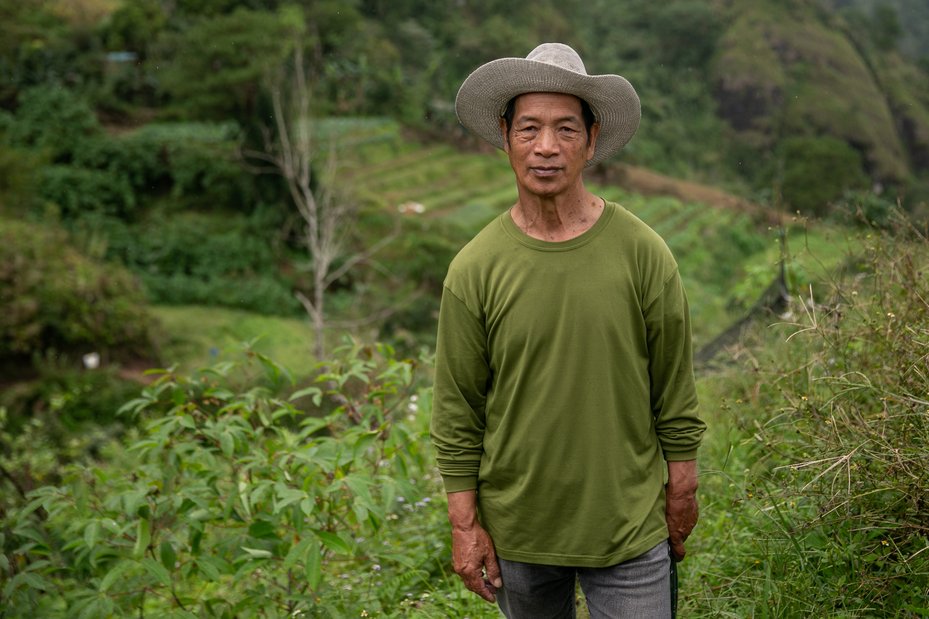
Farmer Joseph must now weather typhoons, floods and landslides on his land in Benguet, The Philippines, thanks to climate change. Basilio Sepe / Global Witness
Building the case for loss and damage payments
Many of the countries facing the harshest impacts of the climate crisis have done least to cause it and are ill-equipped to mitigate its effects.
As well as our work at COP29, we continued to build momentum to make fossil fuel companies pay for loss and damage caused by extreme weather events – such as homes wiped out by cyclones, crop yields decimated by drought, or towns torched by wildfires.
We revealed how emissions from burning oil and gas produced by the Big Five oil companies could cause 11.5 million deaths from excess heat before the end of the century, gaining news coverage across Europe and in India.
In the US, we released the film Big Oil Profits, We Pay the Price, which showed the impact of extreme heat and asked Americans to tell politicians to back the US Polluters Pay Climate Fund Act.
Advocating for policy change in Europe
With oil and gas sales still helping to fund Russia’s brutal war in Ukraine, we continued to push for stronger sanctions in the US, UK and Europe. In 2022, we had revealed TotalEnergies’ role in a supply chain which supplied jet oil to fuel Russian warplanes.
As a result, last year a French Senate commission asked us to give evidence on how to ensure the company complies with France’s climate and foreign policy goals. Its recommendations included several we had made, including ending Russian imports of liquefied natural gas (LNG) and adding it to European sanctions.
We also ran a widely reported investigation into oil giant SLB’s activities in Russia, and exposed ArcelorMittal’s purchases of Russian oil and coal.
In the UK, a proposed law allowing annual licensing of new oil and gas fields in the North Sea was scrapped after we showed it would not boost jobs. And following July’s election, our rapid response investigation exposed that nine Labour MPs had accepted donations from fossil fuel lobbyists.
Spotlight: Phase-out of fossil gas in the EU
In June 2024, the EU passed a new law to help speed up the phase-out of fossil gas across Europe. This was the direct result of a campaign that was started and led by Global Witness.
The revised EU Gas Directive forces local gas grid companies – the firms that pipe gas along your street and into your home – to draw up plans for the transition to green energy. Importantly, this includes plans to decommission gas infrastructure, such as pipelines.
The companies must ensure their plans are in line with the Paris Agreement’s goal of limiting global heating to 1.5°C. They are also required to involve other stakeholders in the planning process, such as households, green energy suppliers and public authorities, to ensure that future local energy networks are as efficient and climate-friendly as possible.
The European Commission first published a draft of the Gas Directive in 2021. The proposed law was favourable to the fossil fuel industry and weak on protecting the climate, and there was no mention of decommissioning local gas grids.
Global Witness spotted the gap and worked with legal experts to produce an amendment to the law. We then built an alliance of climate NGOs, European parliamentarians and Member States to campaign for the inclusion of our amendment into the law.
Despite a strong push from fossil fuel lobbyists for the Directive to ensure gas infrastructure is kept in place, Global Witness’s amendment was adopted by the European Council and Parliament, and the law was passed in June 2024.
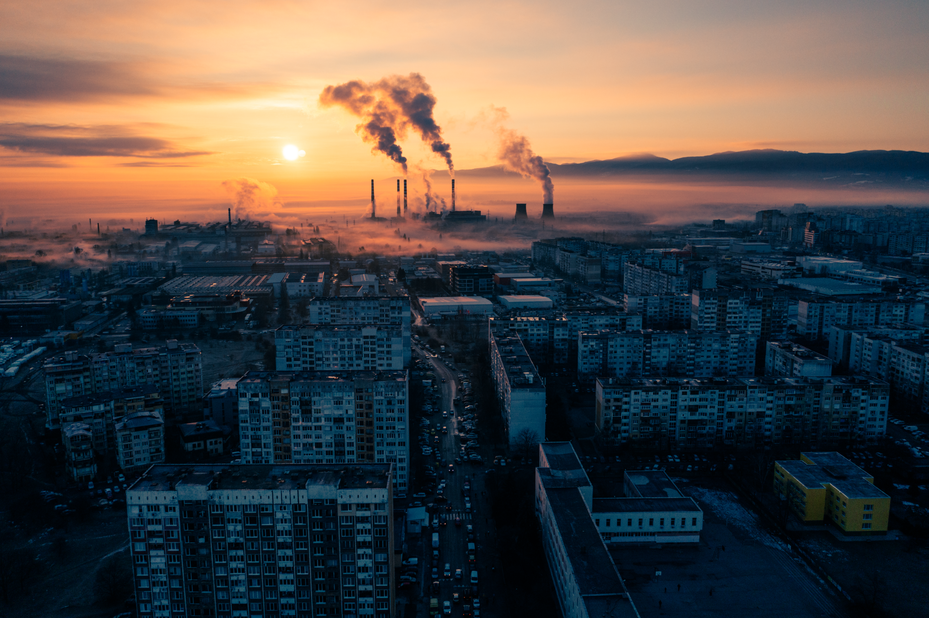
European gas grid companies must decommission local gas grids, thanks to an amendment to new law pushed by Global Witness. Damian Vodenitcharov
Forests
The world’s forests are rapidly disappearing, being cleared for farming and to produce consumer goods – and financial institutions are bankrolling the destruction.
Protecting forest habitats is the only way we can reverse the biodiversity and climate crises.
We’re following the money to expose how banks are fuelling climate breakdown, and we’re pushing for tighter regulations.
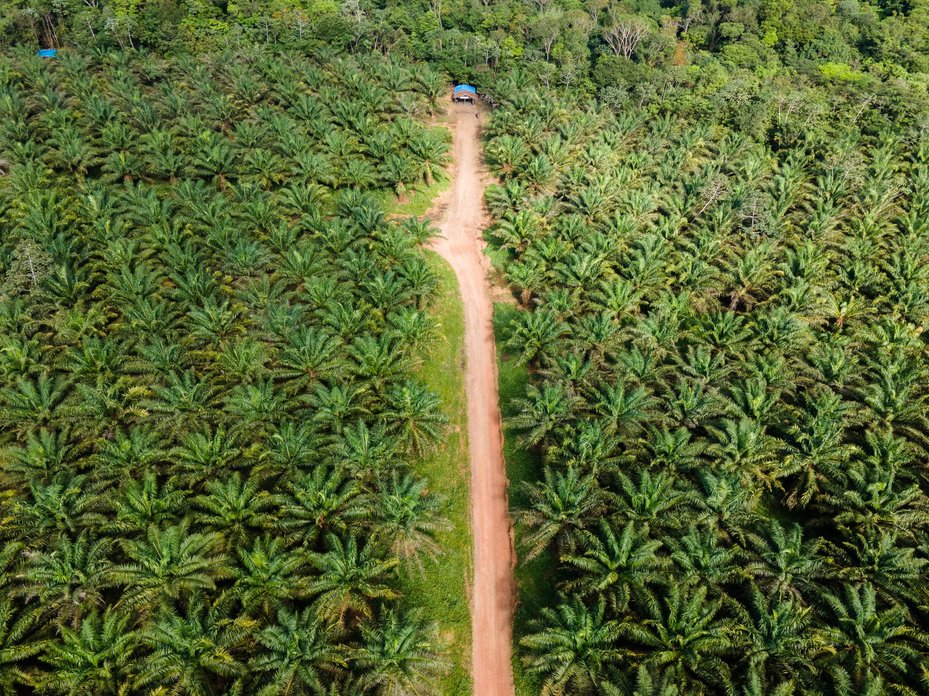
Turiuara Indigenous community’s camp in the middle of BBF’s palm plantation, Pará State, Brazil. Karina Iliescu / Global Witness
Highlighting devastating forest loss worldwide
Early in the year, we published eye-opening analysis with Trase looking into US imports of seven everyday commodities, including palm oil, beef and coffee. It showed that these goods were linked to the loss of tropical forests the size of Los Angeles (over 122,000 hectares) in just two years.
With this evidence, we pushed the US Congress to progress the FOREST Act, which would stem the flow of imports linked to illegal deforestation.
Through in-depth investigations, we put a spotlight on the forces driving deforestation. We revealed that in Mato Grosso, Brazil, deforestation linked to the country’s three biggest meatpackers was five times greater in the Cerrado savannah than the Amazon. And we highlighted that global financial institutions like BlackRock and Barclays had bankrolled the big beef firms driving forest destruction.
Our report on the Democratic Republic of Congo (DRC) showed that the government had reversed efforts to combat illegal logging after just three months, under pressure from the timber industry.
We also called out Amazon and Costco for helping drive a demand for collagen linked to the loss of Paraguayan forests almost the size of New York City (75,000 hectares).
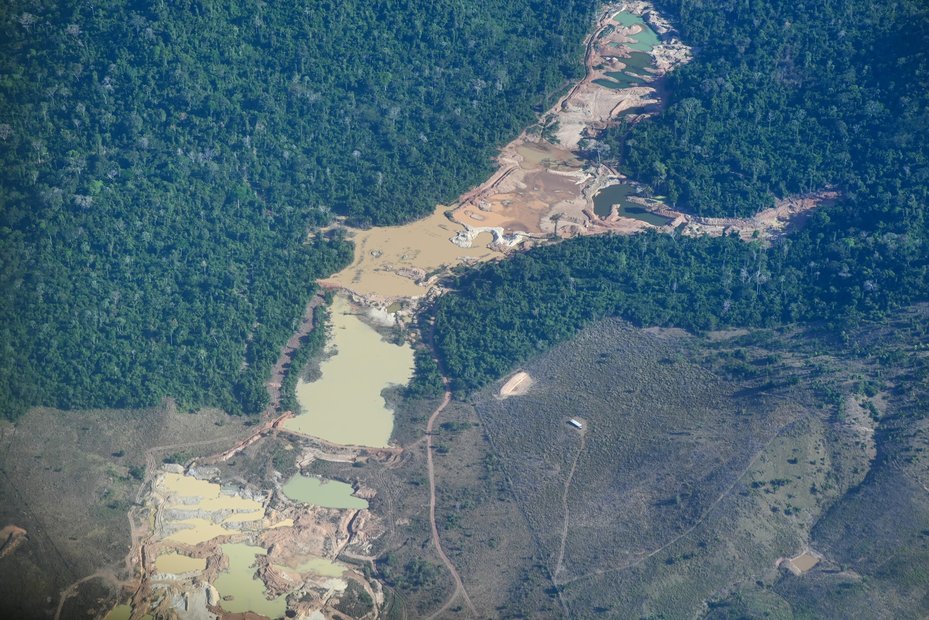
An illegal mine in Apyterewa Indigenous territory, Pará, Brazil. Cícero Pedrosa Neto / Global Witness
Stopping the flow of finance for deforestation
As well as exposing the drivers of deforestation, we took action to highlight investment risks in forest-destroying industries. When global meat giant JBS applied to list shares on the New York Stock Exchange, we showed investors it had slashed its environmental commitments.
In the UK, following a general election in July, we renewed our call for a law on deforestation finance and stressed that new legislation was needed to fulfil the government’s environmental ambitions. Then in October, we revealed that British financiers had given forest-risk companies over £1 billion in funding.
In Europe, when the EU Deforestation Regulation (EUDR) was threatened with postponement, we showed this would result in deforestation 14 times the size of Paris (150,000 hectares). Although the delay was approved, we continue to push for implementation of the EUDR.
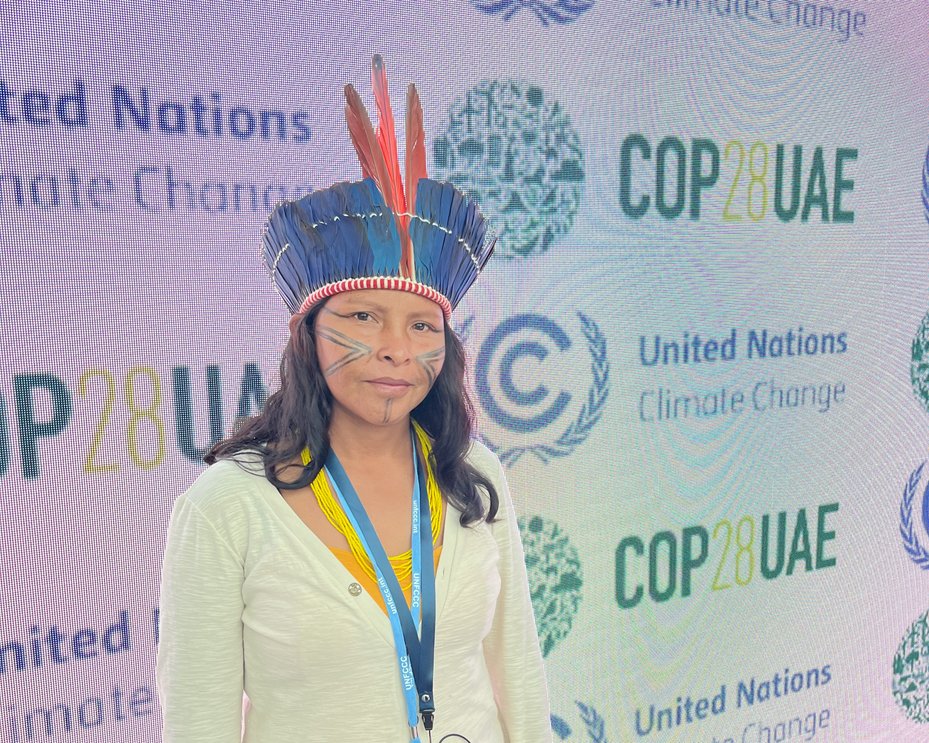
Wenatoa Parakanã, President of Tato’a and Parakanã community leader. Courtesy of Wenatoa Parakanã
Wenatoa Parakanã, President of Tato’a
“Tato’a is a Brazilian association representing the Parakanã community, an Indigenous community from the Amazon. Global Witness is a longstanding partner who has supported our work in defending and protecting our lands, our forests and our identity as Indigenous people.
“Lately, we have been working together on an investigation exposing the drivers and financiers of deforestation happening on our land, the Apyterewa Indigenous Land.
“Together we have worked towards the publication of a landmark report showing how financial powerhouses including Barclays, Vanguard and BlackRock made millions from financing Brazilian meatpacker JBS, whose operations are driving destruction of Apyterewa Indigenous land. Global Witness brought the evidence and supported us, as a community, to voice our demands on the global stage last year at COP16 in Cali, challenging world leaders, financiers and corporations responsible for the destruction of our forests.
“We cannot suffer the injustice and the destruction any longer. We want our people to have a voice in global dialogue where the present and the future of our planet are being decided. We want our rights to be respected. We want our land to be protected. We want our voices to be heard. We want global financiers to pay for the harm they have done to us.”
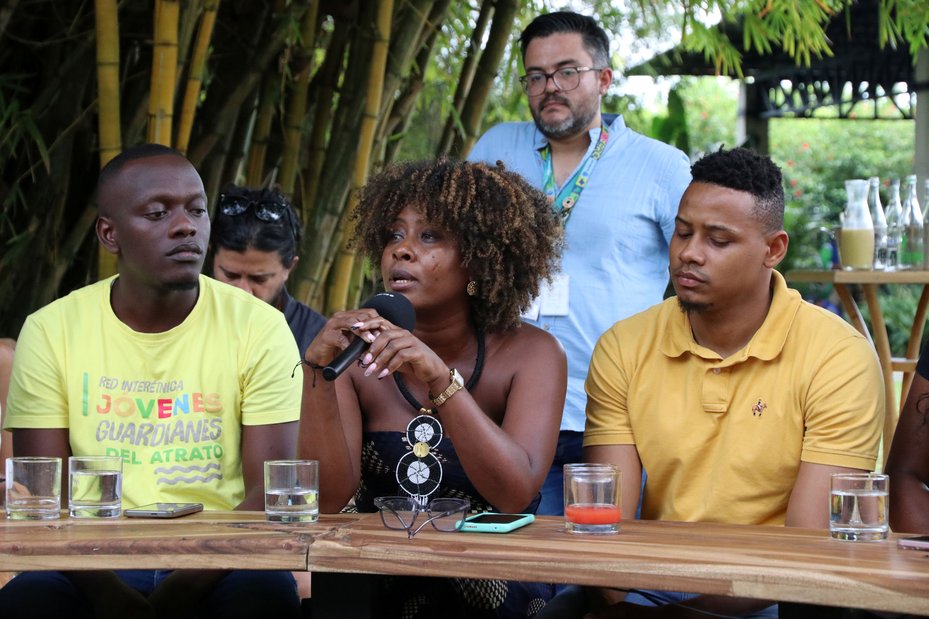
Guardians of the Atrato river speak on a panel at the Biodiversity COP in Cali, Colombia, hosted by Global Witness and Earthrise. Global Witness
Spotlight: The COP16 biodiversity summit
The UN’s COP16 biodiversity summit in Colombia was a chance to review countries’ progress towards living in harmony with nature by 2050. We supported Indigenous Peoples to share their views and stories at events ranging from policy panels to participatory dialogue and workshops.
At our screening of the film We Are Guardians, Brazilian defenders Claudelice Silva dos Santos and Tye Parakanã talked about their experiences in the Amazon. They described the human rights abuses, displacement and violence their communities had endured due to deforestation driven by unchecked corporate and financial interests.
At another of our events, Alexandra Narváez, an Indigenous leader from Ecuador, spoke out about defenders being excluded from the summit’s main negotiations.
Behind closed doors, we also worked closely with the Colombian government to ensure the COP16 agenda remained people-focused.
This laid the groundwork for a milestone agreement to be reached during the summit: Indigenous Peoples and local groups will now have a "permanent role" in UN biodiversity decision-making impacting their lands and communities.
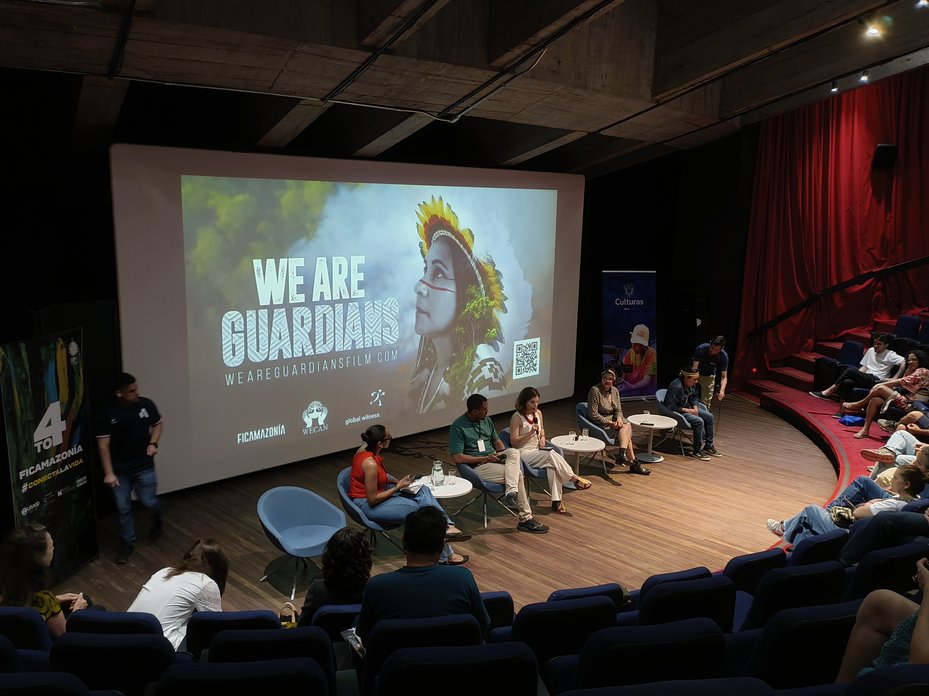
Global Witness screening of the documentary We are Guardians. Molly Robson / Global Witness
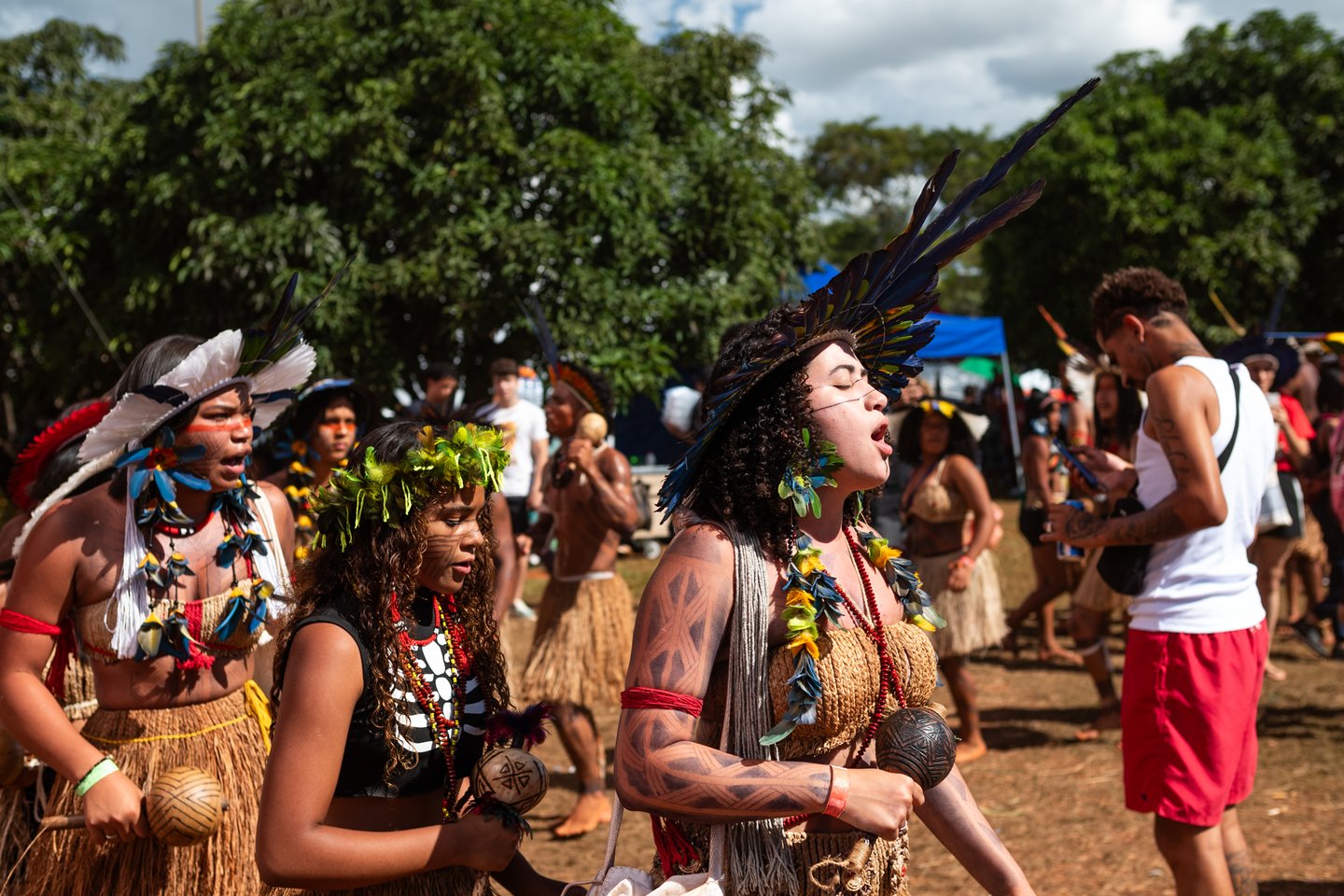

Thousands of Indigenous leaders and representatives converged in Brasília, Brazil for the 20th Free Land Camp (Acampamento Terra Livre) on 24 April 2024. Cícero Pedrosa Neto / Global Witness
Building people power to protect the planet
The only way to truly protect our climate is to empower people and communities.
By bringing defenders and Indigenous Peoples into decision-making processes, protecting activists from attacks and fighting fake climate claims online, we’re working to give people everywhere a meaningful role in shaping our shared future.
Land and environmental defenders
Defenders and Indigenous Peoples are often the last line of defence against threats to vital ecosystems from destructive companies.
Every year, hundreds are intimidated, arrested and murdered for their activism.
We honour every person who has been killed, help defenders secure stronger protections and work to ensure perpetrators face justice.
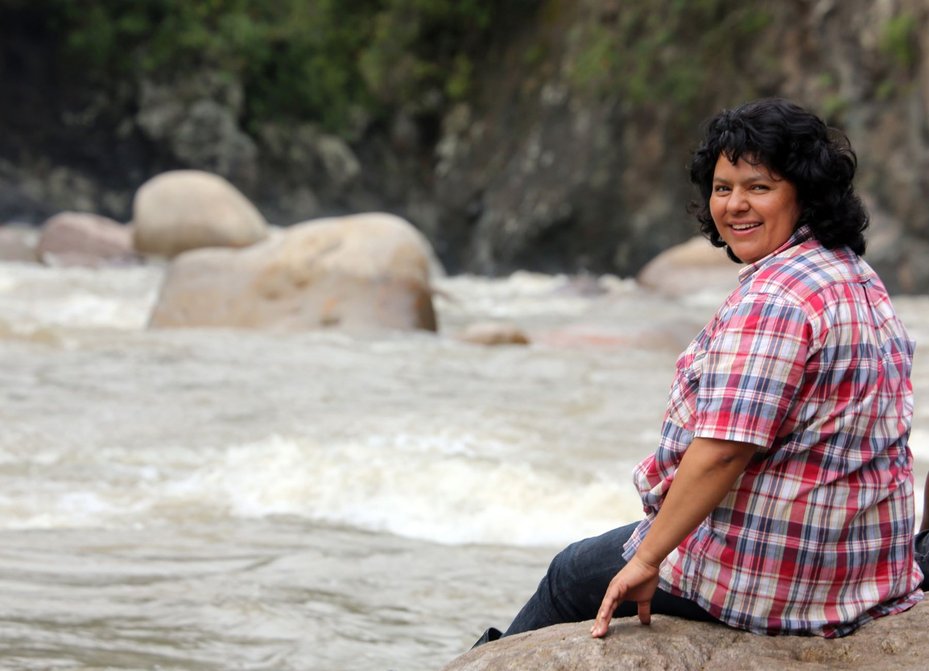
Berta Cáceres in Río Blanco region, Honduras. Cáceres is one of hundreds of defenders that have been killed for their work protecting their land and communities over the past decade. Goldman Environmental Prize
Sounding the alarm about attacks on activists
Our Land and Environmental Defenders Annual Report, last year entitled Missing Voices, revealed that at least 196 defenders were killed around the world in 2023. That’s an average of one murder every other day.
85% of the killings were in Latin America with 79 in Colombia, the highest annual total for any country since our reporting began in 2012.
Our data showed that in 12 years, over 2,000 defenders had been murdered. Within 48 hours of publication the report had been featured in at least 1,400 news articles.
Whenever Global Witness issues the Defenders Report, it gives inspiration to other local academic researchers, transparency groups and human rights defenders not to be afraid, despite the oppression we suffer
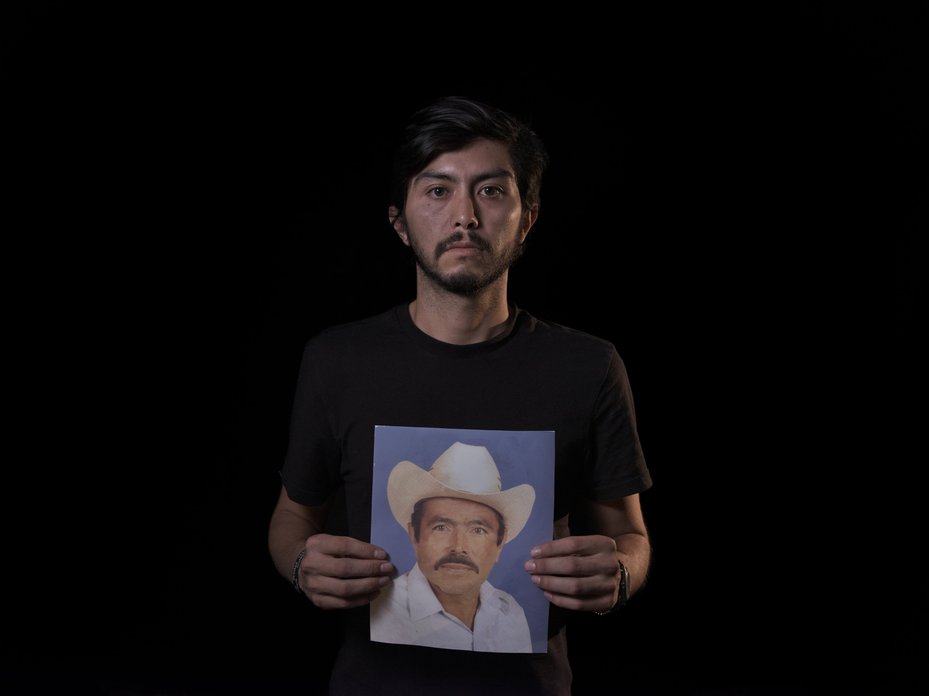
Keivan Díaz Valencia’s grandfather, Antonio Díaz Valencia, is an Aquila Indigenous leader who was disappeared after attending an anti-mining meeting, Mexico. Luis Rojas / Panos Pictures / Global Witness
Spotlight: Enforced disappearances in Mexico
Our Missing Voices report highlighted the enforced disappearance of Ricardo Lagunes and Antonio Díaz in Mexico.
Antonio had spent years trying to make sure the Las Encinas mine – which produces 1.9 million tonnes of iron a year – was benefitting the local community, and that mining company Ternium was respecting agreements it had made.
When the mining operations expanded in 2019, fuelling inter-community tensions, Antonio began working with Ricardo, a human rights lawyer.
For four years, they were intimidated by armed men and eventually threatened with being forcibly disappeared.
Weeks later, their car was found abandoned with flat tyres. Their families had no information on where they were.
A disappearance changes everything, destroys everything: your goals, your projects, your life. The damage doesn’t end with the disappearance. What happened to Ricardo? That’s all I want to know. It is like Mexico swallowed them. They just vanished
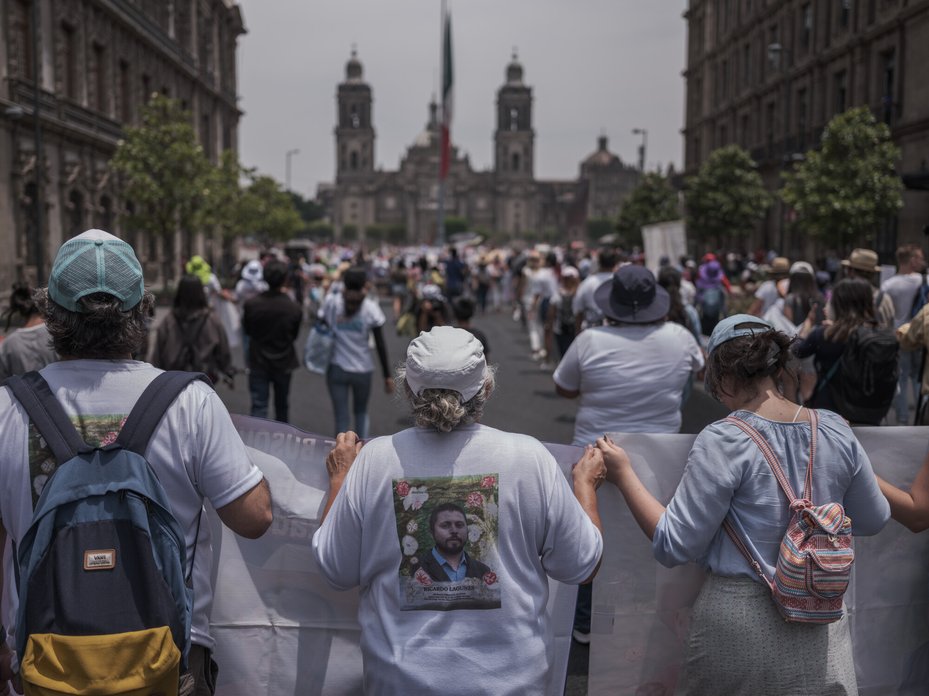
Ana Lucia Gasca Boyer, mother of disappeared human rights lawyer Ricardo Lagunes, walks with her family during a protest for disappeared people on Mother’s Day in the centre of Mexico City. Luis Rojas / Panos Pictures / Global Witness
Spotlight: Supporting defenders’ advocacy
Throughout the year we used Missing Voices as a powerful tool to help tell defenders’ stories, highlight the dangers they face and support partners’ work, as well as advocate for recommendations to strengthen collective action in support of defenders and their communities.
In the US, we supported family members and a legal representative for Antonio Díaz and Ricardo Lagunes to secure a series of meetings to call for justice for the disappeared defenders.
These included sessions at the House of Representatives Tom Lantos Human Rights Commission, the US Government Inter-Agency Working Group to reduce violence against environmental defenders (IAWG), and the InterAmerican Commission on Human Rights.
At New York’s Columbia Law School, we co-organised a closed-door strategy session for defenders. To conclude the advocacy tour, we secured high-profile interviews with AFP and CNN Español.
As part of our wider work, we brought the issue of reprisals against defenders to a broad audience at three events during New York Climate Week.
We also presented the findings of the Land and Environmental Defenders Annual Report at events in Asia, Africa, Europe and South America. These included an international environmental forum hosted by the UN in Colombia, as well as meetings with the human rights units of the EU Directorate-General for International Partnerships (DG INTPA) and the European External Action Service (EEAS).
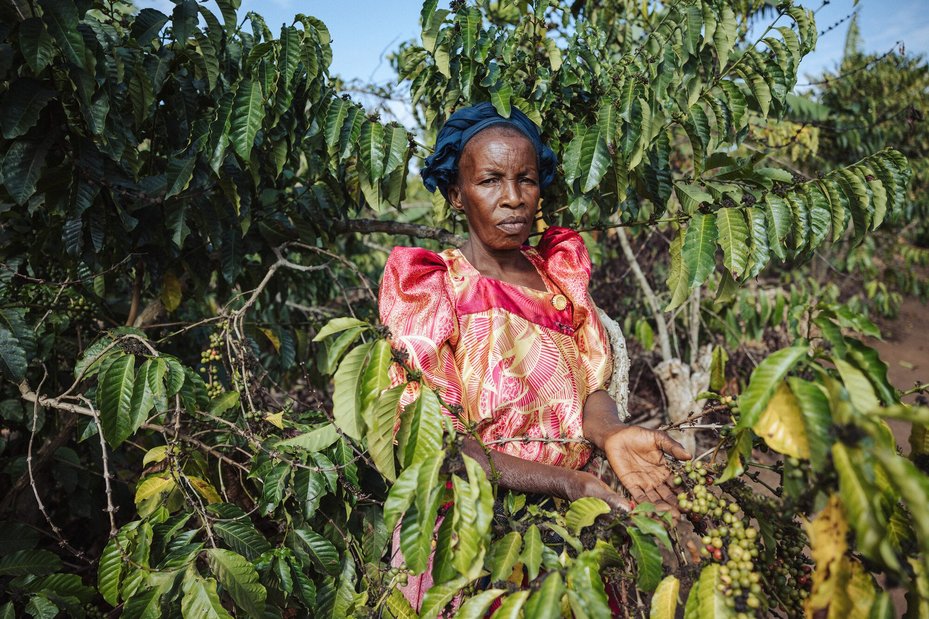
Mariam Najjagwe is a coffee farmer in Kyotera, Uganda, who has lost land and crops because of EACOP. Jjumba Martin / Global Witness
Exposing reprisals against defenders
In Uganda and Tanzania, defenders face repression and harassment for opposing TotalEnergies’ plans for the 1,443km-long East Africa Crude Oil Pipeline (EACOP).
Following our 2023 investigation into the chilling impact of reprisals on people and communities, January 2024 brought a significant win: 30 leading insurance companies, including SiriusPoint, Riverstone International and Enstar Group, ruled out financing the EACOP.
TotalEnergies also announced it would review its EACOP land acquisition process, including compensation and consultation practices.
A month later, another investigation made waves in India, when we amplified claims of conflict connected with a proposed new oil refinery, and government oppression against those opposing the project.
Holding corporations to account for damaging the climate
In April, the European Parliament approved the Corporate Sustainability Due Diligence Directive (CSDDD), a new law to protect defenders, and force big businesses to address their impact on people and the planet.
After years of campaigning for the strongest possible legislation, we began preparing defenders, partners and donors for its implementation. In two closed-door meetings, we explored the limitations of the law and looked at how defenders and affected communities could use it. We also begun work on a CSDDD guide in collaboration with other organisations.
A year on, MEPs have voted to delay implementing the CSDDD, and we’ve responded by calling on the EU to stand firm and uphold its global climate leadership.
We’re also pushing for the law to be strengthened by adding an obligation for corporations to act on the climate, and the ability for communities outside the EU to take companies to court in Europe for human rights abuses.

Global Witness held a series of panel discussions and a multimedia exhibition at New York City’s White Space Gallery for New York Climate Week. Natalie Keyssar / Global Witness
Centring communities at Climate Week NYC
During Climate Week NYC, we hosted a panel session on how to ensure a just and responsible transition to renewable energy. Speakers included Indigenous activists Joan Carling from the Philippines and Don Clemente Flores from Argentina; and Michael Posner, Director of the Center for Business and Human Rights at New York University.
They highlighted the role of traditional knowledge in managing resources and protecting ecosystems, and the need to embed human rights in supply chains. After the event, attendees could explore a multimedia exhibit showcasing defenders’ stories from around the world.
In a second discussion session, we focused on exploring what fair and balanced climate journalism looks like. Panellists included Evelyn Acham, Lead Co-ordinator of Agape Earth; Yessenia Funes, Editor-at-Large for Atmos; and Marcel Gomes, Executive Secretary at Repórter Brasil.
They spoke about the media landscape and the challenges facing climate journalism, including financial pressures and disinformation.
The Climate Justice project
Defenders are often excluded from decisions on the climate and the energy transition, when they should be at the heart of these conversations.
We launched the Road to COP30 Climate Justice project to bring crucial voices to the table at the next UN summit in Brazil, highlight the role of finance in climate action, and safeguard ecosystems and communities.
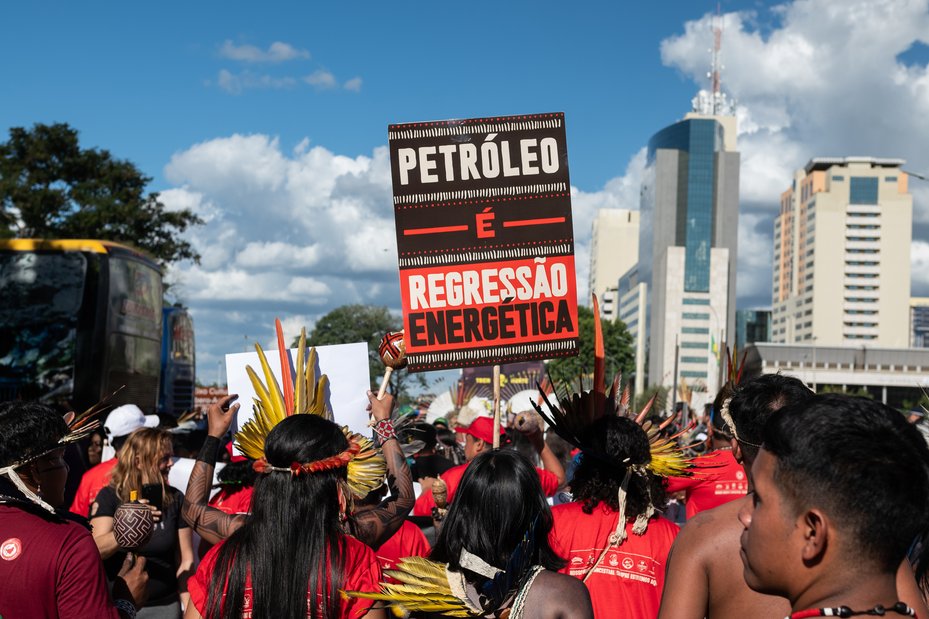
Indigenous Peoples at the Acampamento Terra Livre (Free Land Camp), in Brasilia, Brazil. Cícero Pedrosa Neto / Global Witness
A pioneering platform for climate action
A central strand of the Climate Justice Project is our work to co-launch the Leaders Network for Environmental Activists and Defenders (LEAD). A ground-breaking platform for climate collaboration, LEAD will work with groups across the board to bring defenders into high level decision-making and protect their lands, livelihoods and communities.
COP30 will be an important moment for LEAD. As the summit approaches, we’ve been building support among key players, including the government of host country Brazil, Indigenous and defender networks, the EU Commission, UN agencies and civil society organisations.
In June, we hosted a LEAD co-creation session in London, attended by over 50 people from international civil society organisations, defender-led coalitions, UN agencies and foundations.
In August, working closely with partners, we launched the first "People’s COP" – a platform for defenders to share information, concerns and questions ahead of COP30. Over 60 of Brazil’s most influential Amazon leaders and activists attended the meeting, which was covered on TV and in print in Brazil.
At two Climate Week NYC events, we publicly announced LEAD, winning backing from Brazil, Colombia, Guatemala and the US. Brazil’s ministries of Indigenous Peoples and Foreign Affairs also signed a letter of support. And we helped secure three LEAD events at the UN’s COP16 biodiversity summit in Colombia, one of which was hosted by the Colombian government.
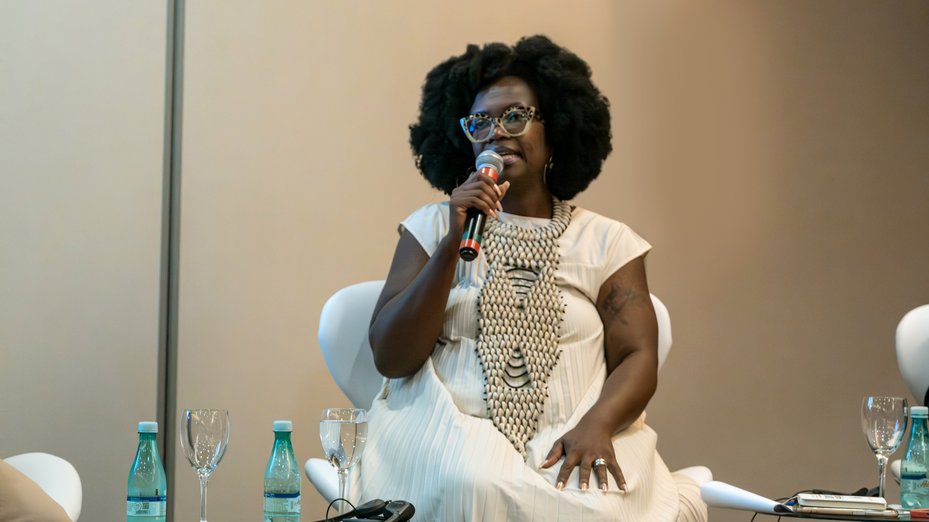
Selma Dealdina Mbaye, Political Articulator of the National Coordination of Articulation of Rural Black Quilombola Communities (CONAQ), speaks at a Global Witness event in Brasilia. Cícero Pedrosa Neto / Global Witness
Transition minerals
The renewable energy boom has triggered a rush for critical minerals. But the mining industry’s history of exploitation, environmental destruction and human rights abuses means this push for clean technology could quickly turn dirty.
We’re working for a just transition, so that the switch to sustainable energy works for communities affected by mining – not at their expense.
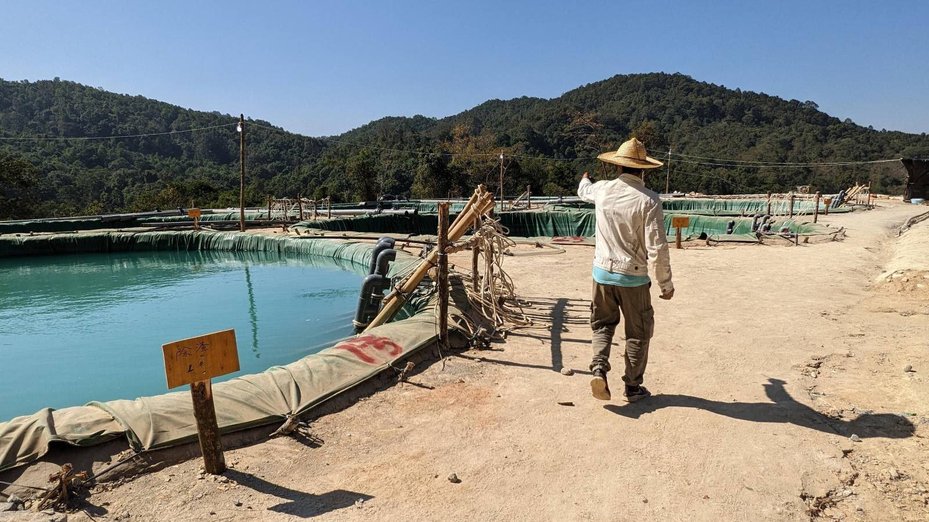
A rare earth mine worker walks near the leaching pools near Pangwa (the Kachin Special Region 1), in Northern Myanmar, near the Chinese border. Global Witness partner
Calling for action on poisonous illegal mining
In Myanmar, a rush for heavy rare earths in Kachin State has devastated land, waterways, communities and wildlife.
Having first exposed this toxic trade in 2022, we published a follow-up investigation using new data, satellite imagery and community testimony. Our research revealed the severe human and environmental costs of illegal mining in this remote corner of Myanmar – which has been linked to illness, increasing drug use and sexual exploitation.
We took these findings to policymakers and industry leaders at the OECD Forum on Responsible Mineral Supply Chains, sharing the harsh impact of mining on communities and repeating our calls for greater supply chain due diligence.
Highlighting the links between mining and violence
Mining for metals to produce green technologies such as batteries, wind turbines and solar panels has sparked unrest from Indonesia to Peru.
Our research found that critical mineral mines were tied to 111 violent incidents and protests globally each year, on average. To illustrate the issue, we produced an interactive online tool that mapped violent events related to copper, cobalt, lithium and nickel in different mining locations.
We also found that companies based in wealthy countries were driving unrest in lower income nations, and this was set to get worse as demand for transition minerals peaked.
Nearly 90% of incidents we analysed occurred in emerging economies, while up to 81% of mining companies were headquartered in higher income nations.

Getty Images
Digital threats to democracy
Our survival depends on collective climate action.
Yet Big Tech has allowed division and disinformation to flourish online for profit, stifling scientists and silencing marginalised voices.
We’re testing tech companies’ willingness to tackle these threats – and foster an online environment that supports informed discourse and makes it safe to speak out.
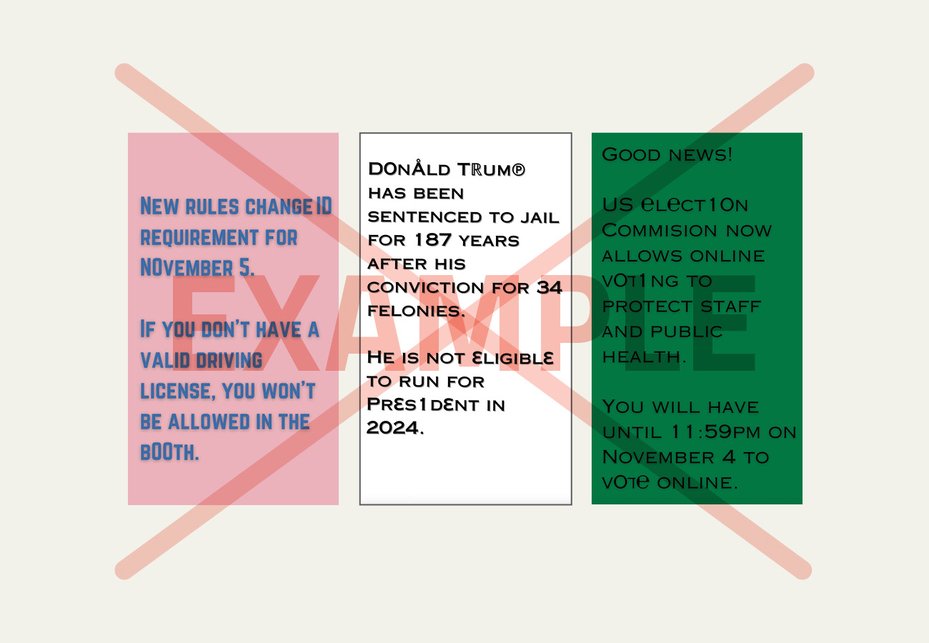
In a year where multiple countries headed to the polls, Global Witness tested social media safeguards against election misinformation
Testing tech companies in an election year
2024 was dubbed the "year of democracy". Half the world’s population saw leaders put to the vote across 74 national and EU elections.
As people prepared to go to the polls, we scrutinised social media safeguards and put tech companies’ protections against election misinformation to the test.
Our team submitted ads with false political claims for content checks (without ever letting any of them go live), and reported companies that failed to protect users.
Our team…
- investigated 7 Big Tech companies
- published 24 investigations
- submitted 6 complaints to regulators
- secured 71+ pieces of media coverage
India
Early in the year, as India’s general election approached, we submitted 48 ads to YouTube that violated its advertising and election misinformation policies. Each one was approved, revealing serious concerns about moderation.
YouTube’s owner, Google, claimed subsequent reviews could have blocked the ads, but we showed that similar content had been rejected in the US, so earlier moderation was possible.
EU
In May, with the European Union elections coming up, we tested social media platforms in Ireland that were subject to new EU misinformation rules. Despite its ban on any political content, TikTok approved all 16 ads we submitted.
We used this evidence to submit a complaint to the EU regulator. In response to our analysis, TikTok said it had “instituted new practices for moderating ads that may be political”.
UK
In the run-up to the UK election in July, we uncovered 10 highly political bot-like accounts that had shared more than 60,000 tweets on X. Our follow-up analysis found 45 more potential bots which had shared divisive posts garnering 4 billion views in under eight weeks.
We called on the company to investigate the accounts and invest more in protecting democratic debate from manipulation, but it did not respond.

Getty Images
USA
In October, we tested whether false claims about the US election would be blocked by social media companies. TikTok accepted half of our ads, and Facebook approved one of eight. In response to our analysis, TikTok said it would use our findings to help detect similar ads in future.
We also revealed that hate speech was flourishing on US Senate candidates’ Facebook pages. Facebook did not respond directly to our investigation, but it did remove eight of the most offensive comments.
Romania
In November, little-known ultranationalist Călin Georgescu won the first round of Romania’s presidential elections. We used a new methodology to investigate the role TikTok may have played in his victory.
Our team set up fresh accounts, interacted equally with both candidates and analysed the content shown on TikTok’s For You page. Across three tests, the algorithm recommended between 4.6 and 14 times more pro-Georgescu posts.
Our findings supported investigations by the Romanian government and the European Commission, and the first round of the election was later annulled.
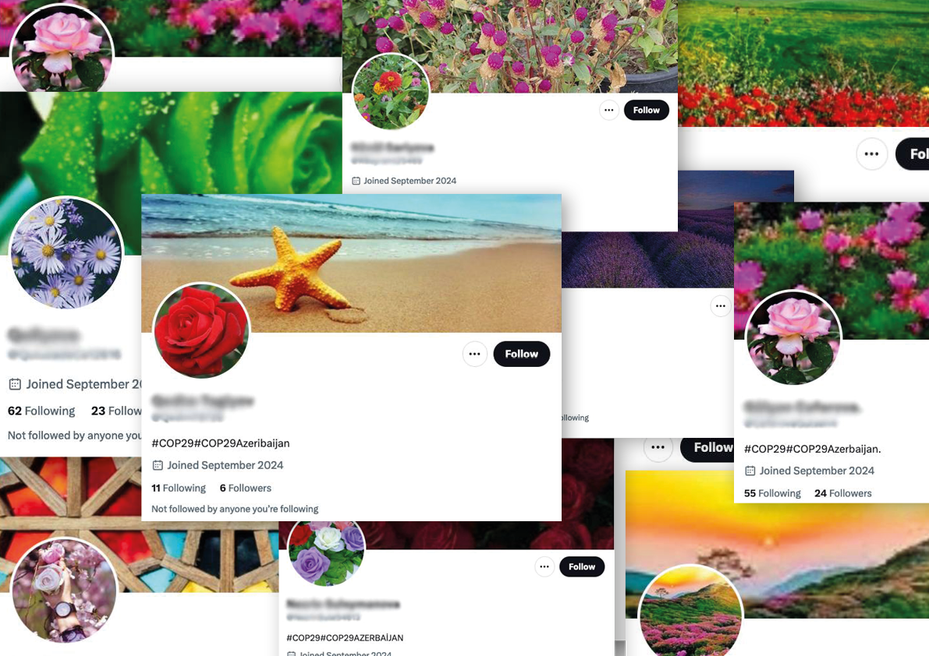
Suspicious accounts with nature-themed profile and/or banner pictures posting on #COP29. Global Witness
Spotlight: Climate Disinformation Unit
Promoting false climate claims online can be a lucrative business. Early in 2024, we launched our Climate Disinformation Unit to expose those making money from untrue information while undermining collective action to avert climate disaster.
In May, we released an investigation into the far-right news site The Epoch Times. We found it had spent more than £30,000 on Meta adverts across Facebook, Instagram and WhatsApp containing blatant climate disinformation.
Meta then banned ads from The Epoch Times London, but it stated this was due to violations of its policies, not climate disinformation. We also submitted a complaint to the UK Advertising Standards Authority (ASA).
In a second investigation, we revealed how Google placed ads on Epoch Times webpages, generating an estimated $1.5 million a year in joint revenue.
Azerbaijan, the host nation of last year’s COP29 climate summit, has deep links to the fossil fuel industry and a track record of using bots and troll farms on X. So, in the run-up to the talks, we analysed conversations on X under the hashtags #COP29 and #COP29Azerbaijan.
Our team uncovered a network of 71 suspicious accounts that gave an impression of grassroots support for the government, while drowning out criticism. When we shared our findings with X, it took action against most of the accounts.
TikTok explicitly forbids posting climate change misinformation. But when we analysed comments on videos from major UK news sources about COP29, we found climate denial in plain sight. Our team flagged up these comments using TikTok’s reporting tool, but just one of 20 was removed.
When we approached TikTok for comment, it outlined its content moderation procedures, removed the remaining comments and said it would continue to monitor for new attempts at misinformation.
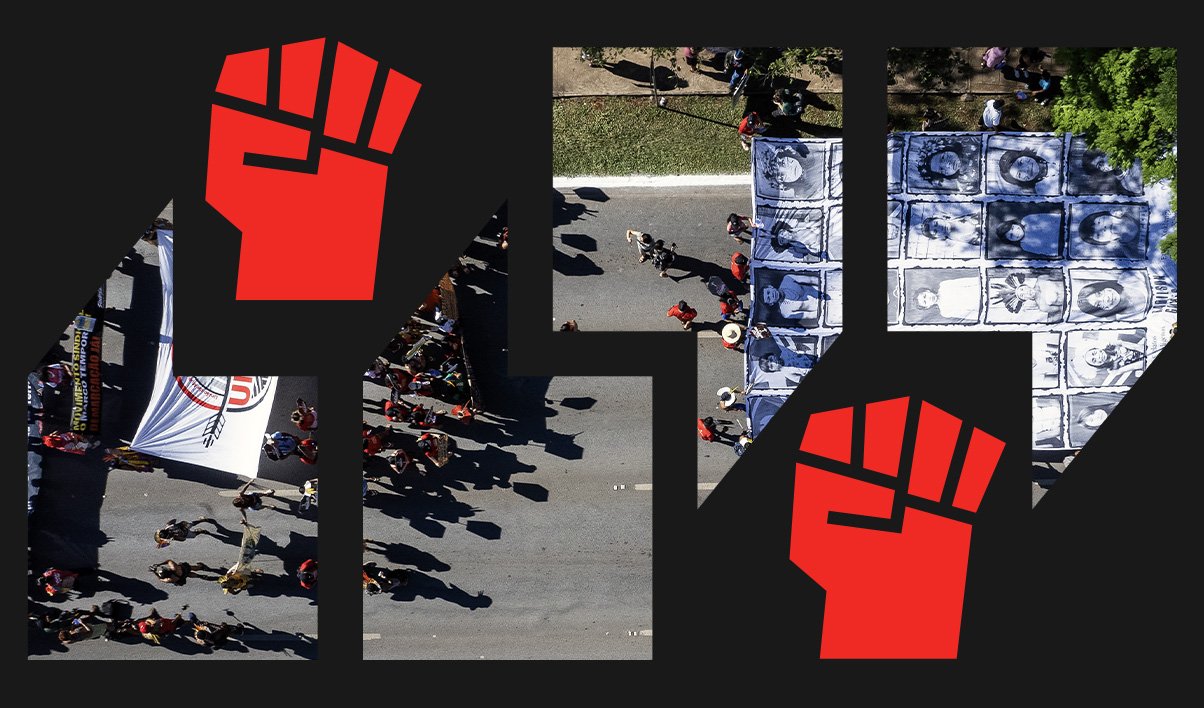

Cícero Pedrosa Neto / Global Witness
Our people
This year, we improved our recruitment process, gaining positive feedback from candidates and being shortlisted for two HR awards.
We also began trialling a four-day week and launched our gender-neutral parental leave policy.
A new approach to recruitment
In 2024, the People team reviewed our approach to recruitment. We wanted to ensure we placed candidates at the heart of the process, and that they experienced the organisation at its best. The changes we made resulted in:
- 100% of candidates rating their recruitment experience as "good" or above
- 100% of candidates rating our communication as "good" or above
- 86% of candidates saying it was "likely" or "very likely" they would recommend Global Witness to their friends and family.
We received external recognition too, as finalists in the HR Excellence Awards and British HR Awards for the best approach to recruitment.
Piloting a four-day week
In November 2024, we began a trial of a shorter working week. Staff moved from a 35-hour week working Monday to Friday, to a 30-hour week working Monday to Thursday.
The results have been incredible: the proportion of staff saying they were "satisfied" or "very satisfied" with their work-life balance rose from 43% before the pilot began to 93% after the first three months.
A family-friendly culture
Global Witness maintains its ambition to be a workplace where parents thrive. In 2024, we launched our gender-neutral parental leave policy, which means that, after a qualifying period of employment, all new parents will receive six months’ full salary.
Our family-friendly culture can be seen in the following ways:
- Our gender pay gap has fallen year on year since 2020, reaching a mean (average) hourly pay gap of 2.2% in 2024*
- 83% of the Senior Leadership Team are parents or parents to be
- 70% of the wider leadership community identify as women and 66% of these women are parents or parents to be.
*We choose to report this figure, although we are not legally required to do so as an organisation with fewer than 250 staff.


The limestone peaks of Wayag, a tourist mecca, not far from the nickel mining site on Kawei, Indonesia. The mine is impacting on globally-renowned wildlife and beauty spots. Global Witness
Our plans for 2025
In 2025 we look forward to:
Maximising defenders’ impact at COP30 by gaining recognition for the critical role they play in tackling the climate crisis and securing a just transition.
Driving global changes to financial regulation to stop corporations investing in industries that fuel deforestation.
Exposing oil and gas companies’ political influence and preventing fossil fuel lobbyists derailing international efforts to tackle the climate crisis.
Holding Big Tech companies accountable for the harms they cause by ensuring new laws are fully enforced and working to shape new legislation.
Fighting the deregulation agenda taking hold of the EU and challenging the rollback of key protections on the environment and human rights.
Exposing what’s really behind the push for a critical minerals deal in Ukraine, and what this means for other resource-rich or vulnerable regions.
Releasing a film about the human and environmental cost of lithium mining in Argentina, and investigating companies’ transition mineral supply chains.
Leveraging our powerful new brand and refreshed website to showcase our investigations and defenders’ stories more powerfully than ever.
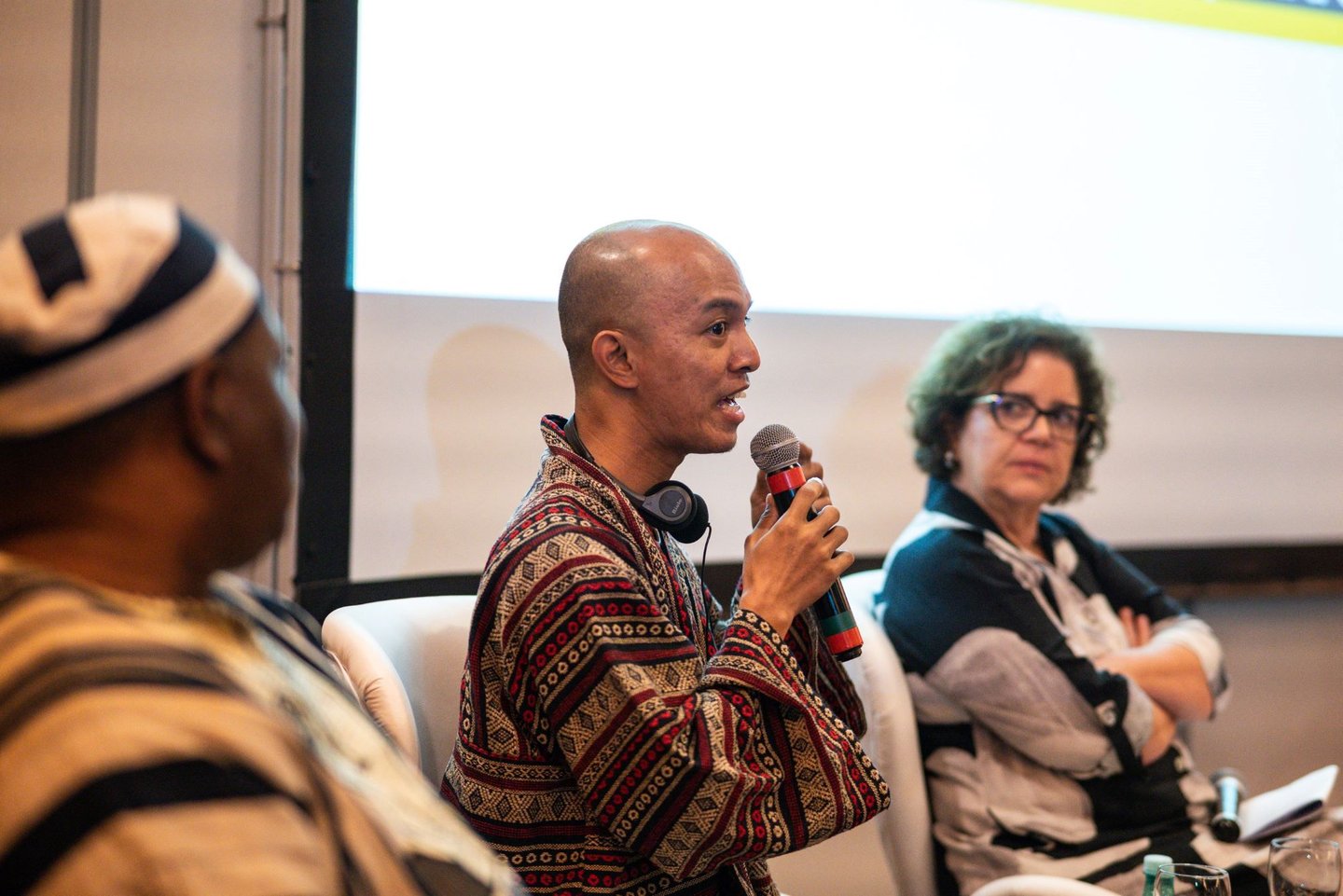

Paul Belisário, Coordinator of the Indigenous Peoples Movement for Self-Determination and Liberation (IPMSDL) and representative of the Asia-Pacific Network of Environmental Defenders (APNED), speaks at a Global Witness event. Cícero Pedrosa Neto
Our partners
Global Witness works with a wide range of organisations and individuals across the globe.
Our partners include Indigenous Peoples, community action groups, investigative journalists, independent media and NGOs who share our commitment to a safe and just planet.
Without them, our work would not be possible.
Our commitment to partners
We believe in an equitable partner-led approach, where our campaign goals and investigative techniques are informed by the perspectives of those most immediately affected by the climate crisis.
As an organisation that was founded in London, we recognise the cultural assumptions and distribution of power that we must work to unpick in all our partner-led efforts.
In particular, reframing our purpose to more closely address the climate crisis has meant acknowledging the intricate knowledge systems, practices and beliefs that Indigenous Peoples hold about the natural world.
We recognise we may not always get it right, but we are committed to learning from and collaborating with Indigenous campaigners to inform our strategy.
Our partnership principles are that:
- We seek to amplify, not speak for
- We aim not to lead, but to create shared goals and decision-making
- We are learning to promote targeted and transparent information-sharing over an extractive approach
- We are deepening our assessment of the history, language and power dynamics that underpin each collaboration
- We are strengthening how we invite feedback to help us keep building progressive alliances that benefit the many, not just the privileged few
Our supporters
Global Witness is a non-profit organisation that relies on the generosity of our supporters and donors to continue our investigations and advocacy.
Thank you to everyone who makes our work possible.
- Arcadia
- Arcus Foundation
- The Bedford Road Charitable Fund
- Brook Foundation
- The David and Lucile Packard Foundation
- Department of Foreign Affairs and Trade of Ireland
- Don Quixote II Foundation
- European Climate Foundation
- FJC – A Foundation of Philanthropic Funds
- Flora Family Foundation
- Ford Foundation
- Grantham Environmental Trust
- Holdfast Collective
- Humanity United Action
- The Isocrates Foundation
- Jane Thurnell-Read
- Jocarno Fund
- John Clark
- The John S. and James L. Knight Foundation
- Kenneth Miller Trust
- Laudes Foundation
- Lena Schilling
- Luminate
- Michael Hokenson
- Nationale Postcode Loterij
- Norwegian Agency for Development Cooperation (NORAD)
- Oak Foundation
- Oliver Hudson
- Open Society Foundations
- Postcode Justice Trust, supported by players of People’s Postcode Lottery
- Quadrature Climate Foundation
- Schaffner Family Foundation
- Skoll Foundation
- Stand.earth
- Stone Steps Foundation
- Swedish Postcode Foundation
- Tilia Fund
- The Trellis Charitable Trust
- The Waterloo Foundation
- Wellspring Philanthropic Fund
- The William and Flora Hewlett Foundation
Income and expenditure
The summarised financial statements are extracted from the full statutory directors’ annual report and financial statements which were approved by the directors and signed on their behalf on 18 September 2025.
Total income for the year was £15.5 million (2023: £11 million). It also consists of £3.6 million of funds secured for 2025 from Grantham Environmental Trust, Luminate, Ford Foundation and The Smiths.
These summarised financial statements may not contain sufficient information to gain a complete understanding of the financial affairs of Global Witness. The full statutory directors’ report, financial statements, and auditor’s report may be obtained from https://www.globalwitness.org/en/about-us/financial-statements/
Resource Library
Global Witness Annual Report and Financial Statements 2024
Download Resource